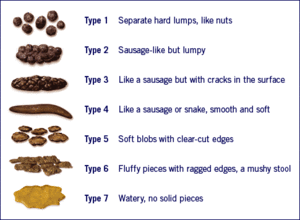Constipation
Jump to navigation
Jump to search
Constipation can be described as bowel movements that are infrequent or hard to pass. It usually results in painful defecation and small, compact faeces. Symptoms of substance constipation may be reduced by increasing the amount of dietary fruit, fibre, and water consumed. Laxatives may also be used for temporary relief.
Constipation is often accompanied by other coinciding effects such as nausea, dehydration, and difficulty urinating. It is most commonly induced under the influence of heavy dosages of opioid compounds, such as heroin, tramadol, fentanyl, and kratom.
Psychoactive substances
Compounds within our psychoactive substance index which may cause this effect include:
- 2-FA
- Acetylfentanyl
- Buprenorphine
- Clonidine
- Codeine
- Datura
- Desomorphine
- Dextropropoxyphene
- Dihydrocodeine
- Ethylmorphine
- Fentanyl
- Haloperidol
- Heroin
- Hydrocodone
- Hydromorphone
- Ibogaine
- Kratom
- Memantine
- Methadone
- Methaqualone
- Mirtazapine
- Morphine
- Myristicin
- O-Desmethyltramadol
- Oxycodone
- Oxymorphone
- Pethidine
- Tapentadol
- Tianeptine
- Tramadol
- U-47700
Experience reports
Annectdotal reports which describe this effect with our experience index include:
See also
- Responsible use
- Subjective effects index
- Psychedelics - Subjective effects
- Dissociatives - Subjective effects
- Deliriants - Subjective effects
